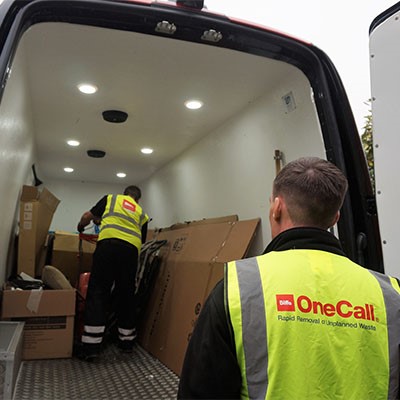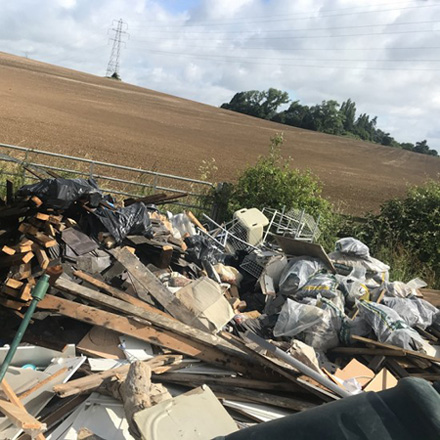Illegal dumping or fly-tipping has been a persistent issue for local authorities and landowners for many years.
The Local Government Association claims that the number of fly-tipping incidents in England had increased by almost 40% since 2012. Illegal dumping can be just as much of a worry to farm owners as machinery theft or product quality with two-thirds of farmers having experienced fly-tipping.
Although it’s not just farmers who are victim to unlawful dumping, local authorities are subject to millions of pounds worth of clean up fees every year, removing waste from public areas including roadsides, alleyways, and public footpaths.
Households

Even households aren’t immune to the effects of waste crime with people reporting incidences of abandoned items on their property, including a large shipping container and a one-year-old horse! Thankfully the horse was rehomed, but for any inanimate waste dumped, the landowner is responsible for removing the rubbish and any costs incurred.
Zero Waste Scotland has released an anti fly-tipping toolkit to tackle the 26,000 tonnes of dumped items each year. The documents sites lack of clarity regarding what households and businesses responsibilities are when hiring a company to dispose of waste, an understanding of the options available and the penalties of fly-tipping, whether direct or indirect as the primary reason for illegal dumping.
Households can make use of local recycling centres, but it can be tricky getting a large fridge or sofa into a car. Some local authorities also offer a bulky waste removal service but won’t be able to take additional smaller unwanted items or refuse. This can result in the need for various disposal methods required to complete the task. For a simplified and easy to understand way of disposing of household rubbish or for businesses looking to do an office clearance or needing some bulky, electrical items removed a ‘Man and Van’ service might be the right solution.
Five things to look for

Here are five things you should look for in a waste removal operator to ensure your waste is disposed of legally:
Ensure the operator you are using for your household or business waste has a valid waste carrier’s licence. This can be checked on the Environmental Agency website.
Is the price too good to be true? Waste operators who ignore their responsibility to dispose of the waste they are carrying legally will often offer lower prices as they don’t have the expenses and taxes linked to correct waste disposal. Instead, they pocket all the profit by dumping for free illegally.
Read reviews online or get recommendations from friends. A reputable waste removal company will value its reputation and its customers and won’t want to partake in unlawful activities for profit.
Ask where your waste will be disposed of and request a transfer note. If you have any electrical items (WEEE) such as televisions, computers or appliances, they will need to be disposed of separately to refuse or recyclable materials.
Hazardous waste
Hazardous waste from commercial properties including fluorescent light bulbs needs to be treated at a hazardous waste facility which usually requires a scheduled collection, therefore be cautious of companies offering immediate collection. A waste transfer note will show exactly where your waste is being disposed of so you can ensure it’s being sent to the required facility.
Enquire about the collector’s recycling policy. Waste operators have a duty to follow the waste hierarchy and should use landfill and a final option. Having an effective procedure in place to maximise recycling and limit waste to landfill will be a good indication of their disposal methods.




Subscribe for free